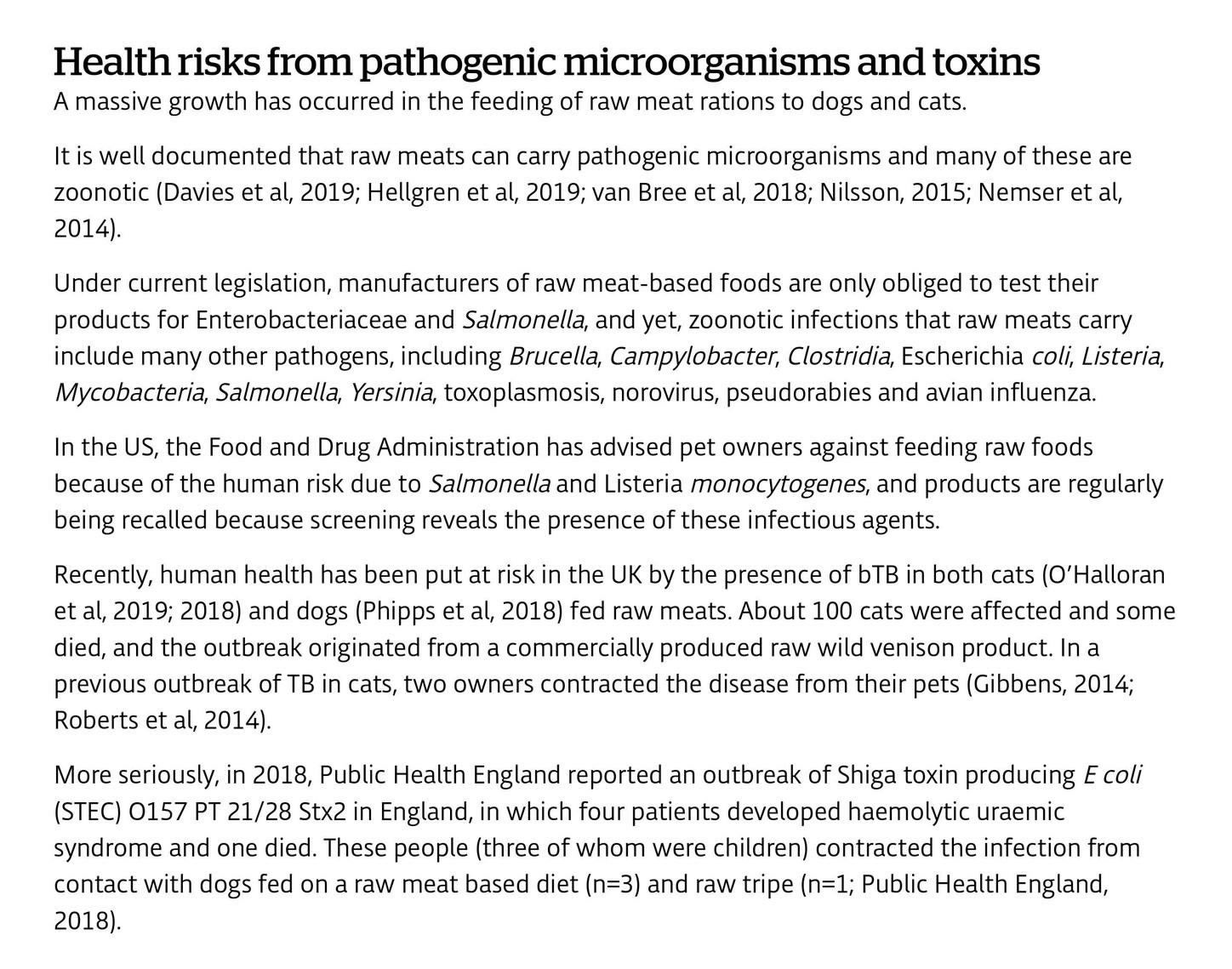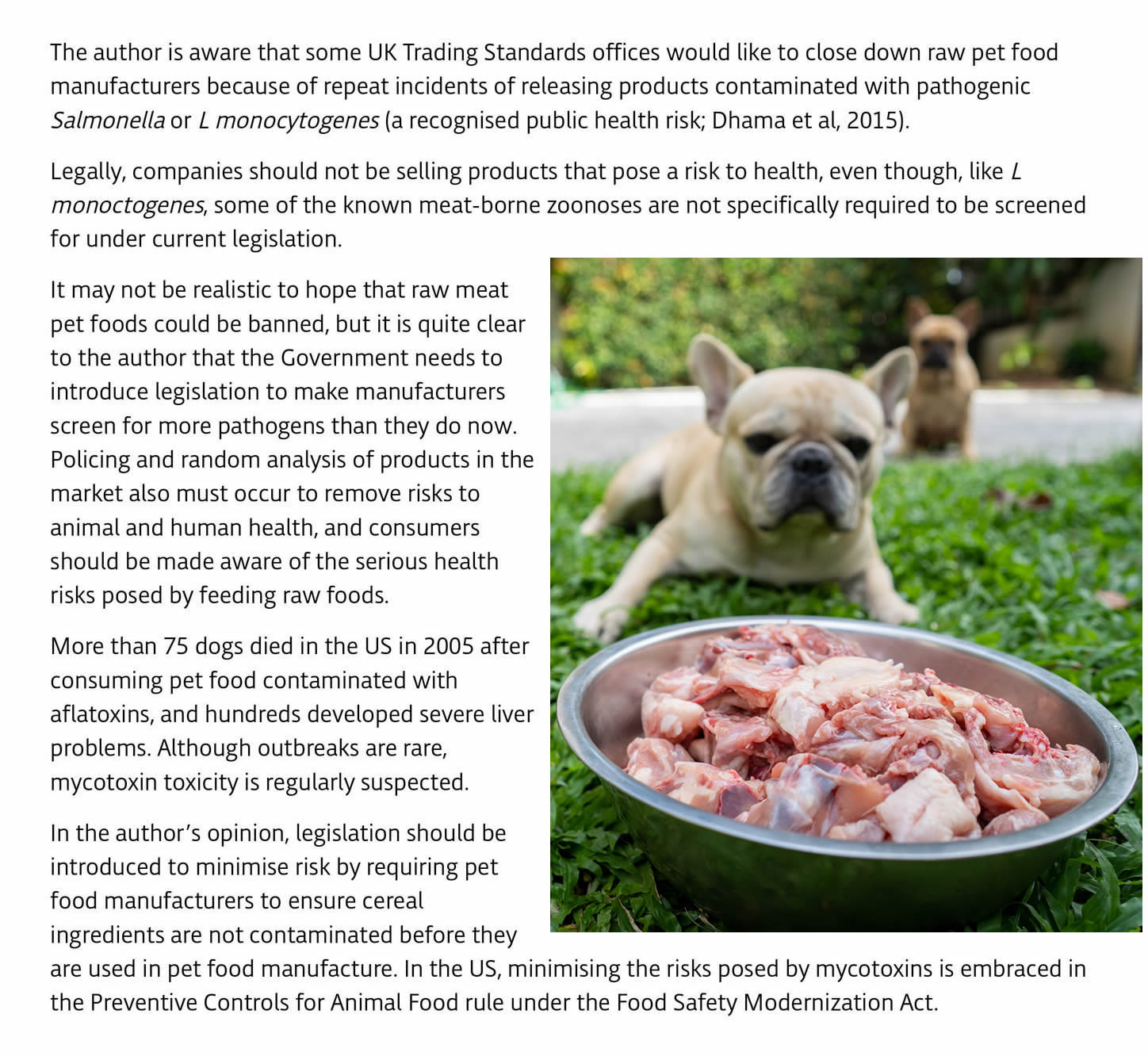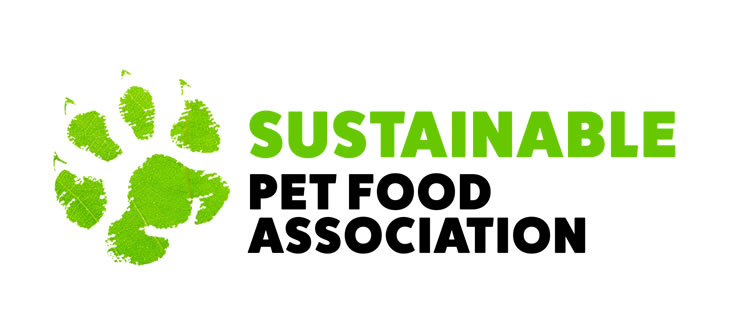The ONLY pet food backed by robust evidence-based scientific research and published papers
No other pet food has generated as much recent research as we had with plant-based dog nutrition. There are 14 published papers to do date (May 2025) all produced without any financial backing from big pet food companies. These are academic papers that have been produced around the world and even been peer reviewed as shown below.
14 STUDIES NOW SUPPORT THE USE OF NUTRITIONALLY SOUND PLANT-BASED DIETS FOR OUR DOGS
“The good thing about SCIENCE is that it’s true, whether or not you believe in it”
– Neil Tyson
The environmental sustainability of meat-based vs vegan dog food (May 2025)
Prof Knight’s latest study published in the journal Frontiers in Sustainable Food Systems has concluded that feeding pets a nutritionally sound vegan diet is a “significant climate change mitigation strategy which warrants immediate implementation”. This study notes the need for governments and the media to raise awareness immediately of the benefits of plant-based pet foods.
This study for the very first time claims that just 25% of animal byproducts are used in pet food, and the sector competes with big pharma and even biofuel to access these ingredients as every part of an animal has a financial value and will never be wasted.
Vegan versus meat-based dog food (September 2024)
Prof Knight’s published study showed that dogs on a vegan diet had less vet visits, suffered from less illnesses and therefore had a superior quality of live which meant they lead longer and healthier lives
Domestic dogs maintain positive clinical, nutritional, and haematological health outcomes when fed a commercial plant-based diet for a year
Linde A, Lahiff M, Krantz A et al. (2024). Domestic dogs maintain positive clinical, nutritional, and haematological health outcomes when fed a commercial plant-based diet for a year. Published in PLOS ONE April 2024 https://dogsgo-plantbased.co.uk/wp-content/uploads/2024/04/AnnikaLindeStudy2024j.pdf
Dr Sarah Dodd Bone Sept 2023 mineral content and density did not differ from baseline values
This latest study of 61 dogs at the University of Guelph by Dr Sarah Dodd et al. (2023) studied 31 dogs fed an experimental vegan diet (‘PLANT’) and 30 fed a commercial meat-based diet (‘MEAT’) for 3 months. Read the study here.
“Bone mineral content and density did not differ from baseline values. Health status was maintained in dogs fed PLANT and Vitamin D2 [which is sourced from non-animal sources] appeared efficacious in maintaining serum total vitamin D concentrations and bone mineralisation. Findings support the hypothesis that PLANT was comparable to MEAT for maintenance of healthy adult dogs for at least 3 months.”
Knight et al. (2022) studied 2,536 dogs fed vegan or meat-based diets for at least one year
Survey of 2,536 mostly European dog guardians (owners)
Knight et al. (2022) studied 2,536 dogs fed vegan or meat-based diets for at least one year. Being a very large-scale study, these results confer a high degree of statistical reliability. Included were owner opinions of health – which are not always reliable – as well as a range of more objective data, such as prevalence of medication usage. Many different indicators of health were pooled. The researchers concluded that the healthiest and least hazardous diets for dogs are nutritionally sound vegan diets.
This study was peer reviewed here with the knowledge that the results came from owner reveiws and was subject to bias, but still the conclusion was that a nutritionally sound plant-based diet for dogs showed positives in health outcomes.
Peer Review of the Impact of Vegan Diets on Indicators of Health in Dogs and Cats Jan 2023
They concentrated specifically on this fact that – “Much of these data were acquired from guardians via survey-type studies, but these can be subject to selection biases, as well as subjectivity around the outcomes.” ie they had to look at the results subjectively as the answers came from vegan owners themselves who were so passionate about the diet and wanting every result to be positive.
This latest published paper from Australia and Mexico is therefore even more important as they had to conclude from all the evidence that –
Domínguez-Oliva et al. (2023) concluded, “there was no overwhelming evidence of adverse effects arising from use of [vegan pet food] and there was some evidence of benefits. … Much of these data were acquired from guardians via survey-type studies, but these can be subject to selection biases, as well as subjectivity around the outcomes. However, these beneficial findings were relatively consistent across several studies and should, therefore, not be disregarded.”
They advised, “… if owners wish to feed their companion animals vegan diets, a cautious approach should be taken using commercially produced diets which have been formulated considering the nutritional needs of the target species.” [ie. that are nutritionally-sound].
How very positive saying that “there was no overwhelming evidence of adverse effects arising from the use of vegan pet food and there was some evidence of benefits.”
Owner perception of health of North American dogs fed meat- or plant-based diets Dr Sarah Dodd (2022)
Dogs on a nutritionally sound vegan diet could live up to 18 months longer than on a meat-based diet as shown here
Reported Health Benefits of a Vegan Dog Food - Dr Mike Davies (2022)
Davies (2022) surveyed 100 dog guardians who had switched to a nutritionally complete vegan dog food designed by UK veterinarians. “The vegan food was acceptable (palatable), and appetite and body weight were not adversely affected. Changes, including improvements, were reported and statistically significant at p< .05 in the following areas: activity, faecal consistency, frequency of defaecation, flatus frequency, flatus antisocial smell, coat glossiness, scales in haircoat (dandruff), redness of the skin (itching, inflammation), itchiness (scratching; pruritus), and anxiety.”
Veterinary masters theses
Semp (2014) and Keimer (2019 – 250 dogs, 40 for clinical examinations and haematology) also demonstrated equivalent or superior health outcomes for vegan dogs.
Plant-based versus meat-based pet foods: Owner-reported palatability behaviours
Proof that vegan dog food diets are as palatable as meat-based or even raw in this significant study carried out during 2020 and published by Prof Andrew Knight in June 2021
Dog domestication reveals adaptation to a starch-rich diet
A fascinating study proving how mutations in key genes occurred allowing increased starch digestion in dogs relative to wolves. These results indicate that early ancestors of modern dogs could thrive on a diet rich in starch which constituted a crucial step in the early domestication of dogs.
Sprint-racing huskies
Very few dogs have greater energy needs than sprint-racing huskies. Accordingly, a 2009 study published in the British Journal of Nutrition compared the health, and in particular, the haematological parameters (focusing on red blood cell counts) of six such dogs with six others maintained on a commercial meat-based diet for 16 weeks, including 10 weeks of competitive racing.
Haematology results for all dogs were within the normal range throughout the study and the consulting vet assessed all dogs to be in excellent physical condition. No dogs developed anaemia. On the contrary, red blood cell counts and haemoglobin values increased significantly over time in both groups.
Listen to Prof Knottenbelt and Prof Knight at London Vet Show 2022
Prof Rob Foale Small Animal Medicine Specialist and Professor of Small Animal Medicine at the University of Nottingham makes a point of reminding us in his very informative webinar as shown on this page, that there are to date NO published studies showing any health benefits of raw feeding of our pets, and yet these companies are being lobbied into being promoted by UK Pet Foods.
Antibiotic resistant bacteria
An article published in November 2021 showed that feeding raw food to our pets fuels the spread of antibiotic-resistant bacteria. Humans and pets can contract this bacteria. Read veterinary article published in MRCVS online August 2022.
The presence of antibiotic resistant bacteria in raw food diets and in the faeces of pets poses a potentially serious public health risk as if a human or pet becomes infected then there would be no effective antibiotic that could be used to fight the infection and organ failure due to infection can result in deaths. THIS IS OUR NEXT PANDEMIC (or we are all ‘tickets’ as Prof Rob Foale mentions in his Webinar)
THE DANGERS OF RAW FEEDING ARE STILL THERE FROM BEING LICKED BY A RAW FED DOG
A STAGGERING 85 PUBLISHED PAPERS AGAINST THE USE OF RAW FEEDING!
Report of 27 dogs with suspected acute polyradiculoneuritis from Campylobacter
The British Food Standards Agency says that one of the main ways to get and spread campylobacter poisoning is through cross-contamination from raw chicken. For example, washing raw chicken can spread campylobacter by splashing it onto hands, work surfaces, clothing and cooking equipment.
Campylobacter is also found in red meat, unpasteurised milk and untreated water. Although it does not normally grow in food, it spreads easily. Campylobacter spp causes vomiting and diarrhoea among around 280,000 healthy people every year and can kill those with vulnerable immune systems. In 2018 there was a report of 27 dogs with suspected acute polyradiculoneuritis (APN) were found to be 9.4 times more likely to have faecal samples positive for Campylobacter spp. Campylobacter can be reduced or eradicated with adequate freezing and cooking of the affected chicken.
75% to 95% of urinary tract infections are caused by E. coli
Escherichia coli is a type of bacteria that normally lives in your intestines. It’s also found in the intestines of animals and is one of the main contaminants on uncooked meat or chicken. While many of us associate E. coli with food poisoning, you can also get pneumonia and urinary tract infections from different types of the bacteria. In fact, 75% to 95% of urinary tract infections are caused by E. coli.
20% of frozen commercial raw food diets are contaminated by Salmonella spp
In the UK, Salmonella contamination of poultry was very prevalent in the 1990s, resulting in a programme which has reduced the prevalence to the targeted <2%. The introduction of raw feeding shows that 20% of frozen commercial raw food diets are contaminated by Salmonella spp that results in vomiting and diarrhoea in both pets and affected humans if affected.
Bowls used for feeding should be cleaned, although standard methods of cleaning bowls, including scrubbing with dish soap and bleaching, are inadequate to eliminate Salmonella.
Listeria can result in abortions in humans
In humans, the symptoms of listeriosis include fever, muscle aches, and sometimes nausea or diarrhoea. If the infection spreads to the nervous system, symptoms such as headache, stiff neck, confusion, loss of balance, or convulsions can occur. Infected pregnant women may experience only a mild, flu-like illness although the infection can result in miscarriage, premature delivery, serious infection of the newborn, or even stillbirth. In dogs it is often clinically silent, although it has been reported in association with abortion in dogs.
The van Bree, et al (2018) study found Listeria monocytogenes in 43% of the samples of frozen commercial raw pet food, and in earlier studies Listeria (and Salmonella) were isolated from were isolated from raw foods and jerky-type treats but not dry commercial foods. Listeria is also transferred to humans from milk or cheeses (especially unpasteurised cheeses) affected with Listeria.
Toxoplasma gondii, Sarcocystis, Neospora caninum, Toxocara canis, Taenia and Echinococcus parasitic infections
Parasites that may be present in raw meat in include Toxoplasma gondii, Sarcocystis, Neospora caninum, Toxocara canis, Taenia and Echinococcus. The van Bree, et al (2018) study found 6% of frozen raw petfoods contained Toxoplasma gondii, 11% contained Sarcocystis cruzi and another 11% had Sarcocystis tenella.
Pregnant women are always advised to wash their hands when preparing any raw meat as Toxoplasma gondii can cause miscarriages. The problem is also as concerning when gardening so gloves should always be worn in case of coming into contact with infected faeces.
Vets can still be charged if an owner falls ill from them recommending or selling raw foods


MOST WORRYING OF ALL!
With the love of our dogs for eating raw food (obviously dogs will eat anything that we offer them but high protein and fat foods will be chosen first), these raw feeding companies have grown to frightening levels.
Bella and Duke received £80 000 of investment in 2022 which they put towards this that is frankly quite terrifying in its health risk. They have sponsored Therapy Dogs which means that ALL of those bacteria that are mentioned above will be taken into care homes and hospitals and elderly residential care and schools where all our most immuno suppressed public lives and we are doing nothing as vets to protect the public!





